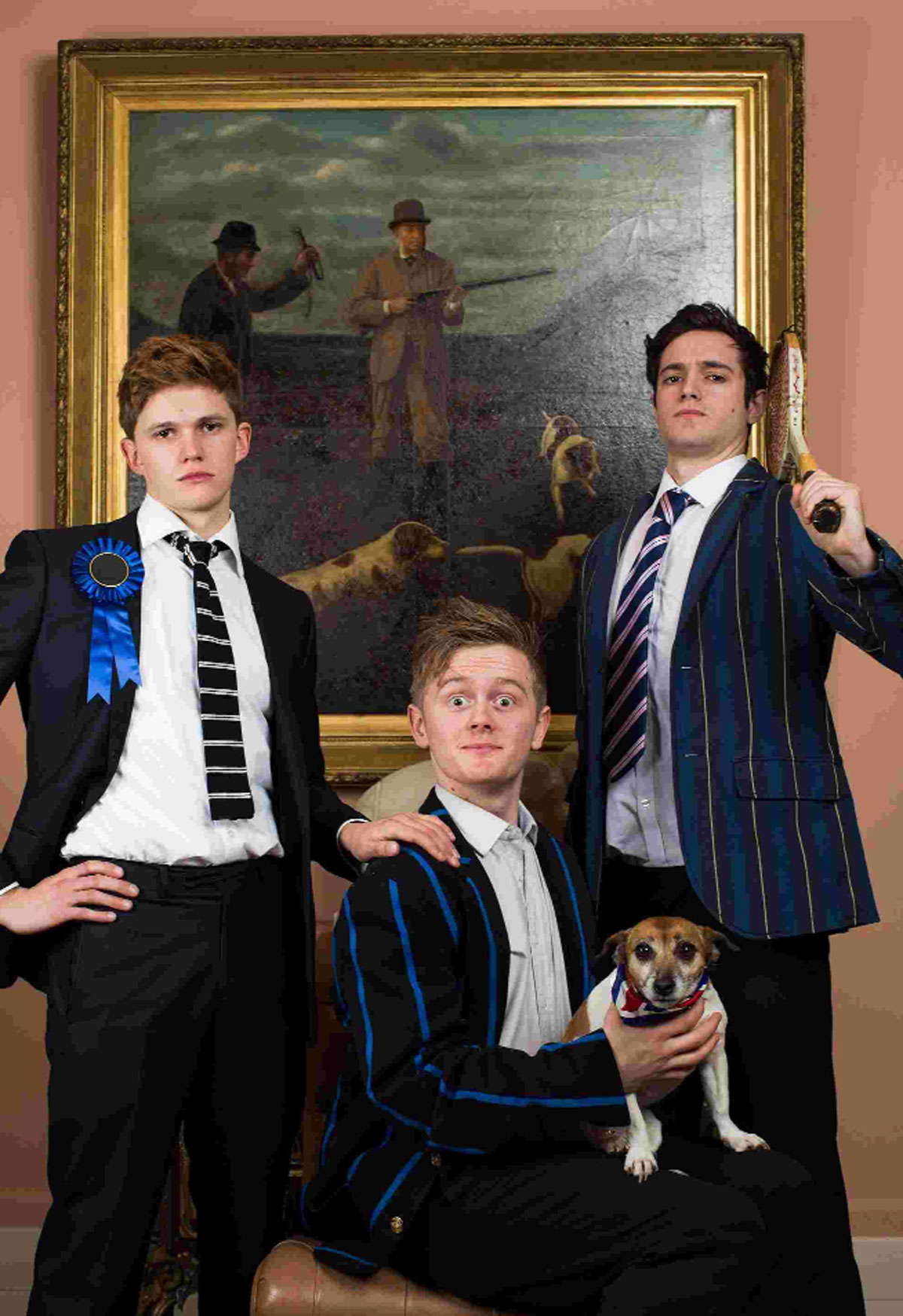Tory Boyz, Ambassadors Theatre
reviewed for Conservative Home, on 24 October 2013

Nina: I remember at Uni, sharing a house. We’d have arguments about the washing up. I would just do mine. Another housemate would sometimes do other people’s. Her point being if everyone chipped in, it’s nicer. And fairer. I thought if everyone just did their own, it would always get done. I think that’s when I knew. Or started to.
For Nina, PA to a mysterious Tory Minister for Education known only as Michael, coming out as a Tory wasn’t obvious. And in James Graham’s Tory Boyz, Nina isn’t the only character asking herself if she bats for the right team. It’s the question that cuts through this tangle of Tory tradition and modern sexual politics: in a party of individual liberty, whose side is anybody on?
Graham’s This House, an ethical thriller fashioned from the mechanics of the Wilson and Callaghan whips’ offices, established him as an exceptional political writer. Tory Boyz is an earlier work, juvenilia by the standards of whizz kid juvenilia. And frankly, it shows.
The tale of Sam, a principled gay Tory, has been updated for this revival: Graham can now cite a gay marriage within the grounds of the Palace of Westminster; a Coalition referenced with better gay wedding jokes than I’ve heard before; and the perceived effeminacy of the Cameroons. But while Tory Boyz is adroitly performed by the young virtuosos of the National Youth Theatre, I doubt the average observer of Tory politics will find much that’s new here.
Largely, this is structural. Sam, heroic parliamentary researcher, decides to investigate the life of Ted Heath. Perhaps he’s looking for a distraction from his bullying boss, perhaps he’s looking for a gay role model in Parliament. Whatever the case, this investigation does have it rewards. Graham’s understanding of life in Portcullis House is as good as the best lobby journalists – and fans of This House will be unsurprised to hear that the best of the cinematic flashbacks from Ted Heath’s storyline is set in his Whips’ Office, where backbench blackmail is portrayed with dry wit and melancholy.
But this plodding through the past can also be tiresome: are we particularly interested in scenes of Heath’s unhappy childhood? We learn that Heath finds it hard to play with other children, he loves his mother and misses her dreadfully when she dies. So far, so obvious – and, dare I say it, a little 1950s in its diagnosis of homosexuality. The conceit that sees Heath fruitlessly telephone a mystery person, just for Sam in the present day to miss the connection, seems hideously over-stylised.
Graham’s dialogue, so dazzling in This House, has plenty of dud moments: within the opening five minutes, the supposedly sophisticated Sam has landed a “women in Labour” joke. You don’t have to have endured Ruth Kelly’s Cabinet career to be bored of that one. Ted Heath’s pleasure in his organ also makes its usual appearance.
Graham’s wit is sharper when delineating his characters, rather than relying on their jokes: Nicholas, the Minister’s rambunctious chief of staff, is a divinely drawn study of a total w**ker. He’s given life by the compelling Sope Dirisu, who deserves to be one of the National Youth Theatre’s break-out stars. But even Nicholas has to channel Graham’s moments of laboured exegesis: do we really need to hear him explain to an intern the revelation that boarding school breeds a culture of homoeroticism amongst Tory MPs? Is this the new information for which the West End has been waiting?
Questions of sex and politics are more deftly explored in the scenes between Sam and the school children he chooses to use as testers for his political research. Here, Graham’s dialogue is suddenly in tune, and not just because the rhythms of teenage chatter play to his young cast’s strengths. The dynamic between Sam (Simon Lennon) and Ray (Aaron Gordon) is beautiful, Ray’s classroom bully shadowing the adult Nicholas, but displaying his insecurities more directly. And Graham excels in using the school children’s innocence to ape our broader political assumptions: Ray is stunned to learn, after seeing constant media coverage of UKIP, that they don’t currently hold any seats.
But that brief mention of UKIP highlights why Tory Boyz is already behind the curve. This is a play which asks what the modern Tory party looks like. It does so adroitly – Sam, a gay Northerner, has some deft turns of phrase on the importance of individual liberty. Yet the real battle for the soul of the Tory Party will be marked by how the Cameroons respond to UKIP entryism in the months ahead, the latest incarnation of which is the snappily titled Unite The Right campaign.
Can we continue to exist as one broad, but modern, coalition of conservative individuals? Must we continue the polarisation into two, separate parties? Or will the future see a Britain in which only one party claims the right-wing mantle, but that party lets Farage and his heirs pick its candidates? The answers to these questions are bogged down in the practicalities of electoral demography, organisation and political leadership. Tory Boyz is a superb snapshot of life inside the Westminster village – a life that rarely changes, whoever’s in charge. But on the big issues it feels curiously irrelevant.




